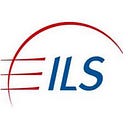Principled Protest Thwarts Minnesota Educational Department’s Efforts to Eliminate Holocaust References
An Educational Department’s Attempt to Omit Holocaust and World War II Studies Should Serve as a Wake-Up Call
January 13, 2021, Washington, DC — During the month of December 2020, a principled protest movement led by the Jewish American community and concerned leaders across the nation thwarted an attempt by the Minnesota Department of Education to eliminate Holocaust references.
A published report via the independent Jewish online media hub highlighted the concerns:
“An early draft of the upcoming Minnesota Social Studies standards has omitted any references of the Holocaust according to a draft posted to the Minnesota Department of Education website. The review of the standards happens every 10 years, and there is a public comment period for this draft that runs until Jan. 4, 2021. The MDE website, which lays out the schedule, usually takes nearly two years before the final standards are adopted. After receiving more than 400 emails from the Jewish community and a productive meeting last week with officials from the Minnesota Department of Education, Holocaust and genocide studies will be included in the second draft of the state’s social studies standards which is undergoing its once-a-decade review.”
On December 20, 2020, Lonny Goldsmith provided this update:
“After receiving more than 400 emails from the Jewish community and a productive meeting last week with officials from the Minnesota Department of Education, Holocaust and genocide studies will be included in the second draft of the state’s social studies standards which is undergoing its once-a-decade review.”
In America today, only one-third of U.S. states — the following sixteen states (found below) require Holocaust education as highlighted by the US Holocaust Museum:
- Arizona
- California
- Colorado
- Connecticut
- Delaware
- Florida
- Illinois
- Indiana
- Kentucky
- Michigan
- New Hampshire
- New Jersey
- New York
- Oregon
- Rhode Island
- Virginia
The International Leaders Summit has advocated for the necessity and urgency to raise financial resources to support Holocaust educational curriculum that can reach 50 million schoolchildren in America’s public, private and charter schools, plus the fastest growing educational community of 2.5 million homeschoolers and and their just-over 1 million families.
The US-based independent think tank also engages elected leaders, business and media leaders to address the issues of Holocaust denial and the resurgence of anti-Semitism in America and Europe through the Jerusalem Leaders Summit and key summit events in America and strategic efforts in Europe.
An article posted by Forbes on April 24, 2020 titled “Why Kids Know Even Less About History Now — And Why It Matters” relays the somber statistics:
“Scores in history and geography have declined from five years ago; those in civics are flat. Only 15% of 8th-graders scored proficient or above in U.S. history along with about a quarter in civics and geography. In reading and math, by contrast, about 35% of 4th- and 8th-graders clear that bar — with the only exception being 4th-grade math, where the proportion rises to 40%.”
A study by The Conference on Jewish Material Claims Against Germany reported:
11% of US adults and over one-fifth of Millennials (22%) haven’t heard or are not sure if they have heard of the Holocaust. While approximately six million Jews were exterminated in the Holocaust, nearly one-third of all Americans (31%) and over four-in-ten Millennials (41%) believe that two million Jews or less were killed during the Holocaust. Millennials are less familiar with Auschwitz as two-thirds of Millennials (66%) cannot identify what Auschwitz was.”
To forget the victims means to kill them a second time. So I couldn’t prevent the first death. I surely must be capable of saving them from a second death. — Elie Wiesel
Engaged citizens and taxpayers from within America must encourage state legislators and governors to invest in Holocaust education and history’s lessons from the First and Second World Wars for schoolchildren attending public schools. Without principled initiatives to educate America’s youth about historical facts, the efforts to address the resurgence of anti-Semitism and Holocaust will be further undermined. Leaders, engaged citizens and educators must press forward on this vital cause to support Holocaust education in America and beyond.
